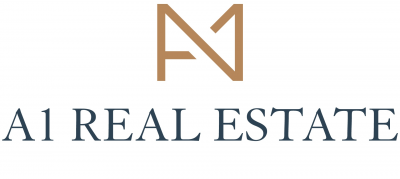
Who has to pay the charges in a furnished rental?
Summary
- What is the list of charges in furnished rentals?
- What is the list of charges in empty rental?
- Who pays the charges for an empty home?
- Who pays the charges for mobility leases?
- Who pays the charges in residential leases?
- What are the expenses attributable to the tenant?
- Rental charges vs private charges
- What does rent include charges mean ?
Rental charges are expenses that concern the tenant, but are initially paid by the landlord. The landlord is reimbursed by the tenant. If it is a residential lease (empty or furnished) or a mobility lease, the payment of charges by the tenant is made either by the payment of provisions for charges with annual regularization, or by lump sum.
Whatever the nature of the rental contract, empty or furnished, the exhaustive inventory is framed by decree. These may be common charges or private charges. Among the expenses that are recoverable:
- Maintenance expenses: cleaning of common areas, maintenance of green spaces, repairs and maintenance: elevator, intercom, etc.
- Energy supply to private and common portions: cold water, hot water, heating, etc.
- Taxes and fees: household waste collection tax.
During the drafting and elaboration of the contract, the expenses must be mentioned, as well as the allocation chosen. In furnished rentals, it is possible to set the charges to the flat rate or the actual.
Who pays the charges in residential leases?
The lease provides for payment by provision (with annual adjustment).
In case of difficulties in paying his charges, the tenant can ask the owner for payment deadlines. If there is a dispute between the tenant and the landlord, it is possible to appeal (free of charge) to a conciliator of justice.
What are the expenses attributable to the tenant?
In the lease agreement, the owner-lessor or lessor shall mention:
- Rent "excluding charges"
- The amount of recoverable charges on the tenant
> Repairs at the expense of the tenant
> Repairs at the expense of the owner
What is the list of non-recoverable charges?
The lessor must assume:
- Damage caused by dilapidated housing or equipment, construction defects
- Charges that enhance the value of the building or dwelling itself
- The replacement of tiles or slates, gutters, chimneys, balconies, terraces, shutters, doors, defective electrical installation, household equipment out of order.
Some works are administrative obligations (decree of 9 September 2004): connection to the sewer, burial of telephone or electrical lines, facelift, elevator upgrades, fire doors, etc.
Rental charges vs private charges
Private charges are those that are the responsibility of a single co-owner, this is particularly the case for expenses for works of collective interest carried out on the private portions. It includes, for example, the costs related to the recovery of charges in the event of non-payment.
Private charges may also concern charges resulting from its own consumption (example: electricity).
What does rent include charges mean ?
This refers to collective dwellings, apartments and individual houses.
When the rental agreement says "charges included", it means that the amount takes into account the price of the rent and the amount of rental charges. The tenant pays the amount of his rent and pays a provision on charges.
The charges are:
- Common energy expenditure: consumption of water, electricity, gas, heating
- Maintenance of common areas: routine repairs to community facilities (elevator, guarding, repair of mailboxes, etc.)
- Rental taxes: removal of household waste, sweeping tax, sanitation fee
What is the list of charges in furnished rentals?
- Electricity
- Periodic inspection, cleaning, semi-annual examination of cables
- Supply of maintenance products or equipment (rags, greases and oils, cabin lighting lamps)
- Minor repairs to the cab (change of send buttons, door hinges), landings (mechanical, electric or pneumatic door closers) and fuses
Cold water, hot water and collective heating:
- Cold and hot water from all occupants
- Water required for routine maintenance of common areas
- Water required for routine maintenance of outdoor spaces
- Products required for the operation, maintenance and treatment of water
- Operation of general and individual meters and maintenance of flue gas scrubbers
- Repairing leaks
Individual installations :
- Heating and hot water
- Water distribution in the private areas (flow and temperature adjustment, troubleshooting, replacement of flush joints)
Interior common areas :
- Electricity
- Supply of cleaning products and disinsection and disinfection products
- Maintenance of carpets, garbage chutes
- Repair of cleaning equipment (e.g. vacuum cleaner)
- Personal maintenance costs
Outdoor spaces (some expenses are the responsibility of the tenant: operating and maintenance expenses):
- Parking areas
- Green spaces
- Children's play equipment
Taxes and fees
The expenses remaining the responsibility of the tenant:
What is the list of charges in empty rental?
- Electricity
- Periodic inspection, cleaning, semi-annual examination of cables
- Supply of maintenance products or equipment (rags, greases and oils, cabin lighting lamps)
- Minor repairs to the cab (change of send buttons, door hinges), landings (mechanical, electric or pneumatic door closers) and fuses
Cold water, hot water and collective heating (certain expenses recoverable from the tenant):
- Cold and hot water for all occupants
- Water required for routine maintenance of common areas
- Water required for routine maintenance of outdoor spaces
- Products required for the operation, maintenance and treatment of water
- Operation of general and individual meters and maintenance of flue gas scrubbers
- Repairing leaks
Individual installations (expenses to be borne by the tenant):
- Heating and hot water production
- Water distribution in the private parts (flow and temperature adjustment, troubleshooting, replacement of flush joints)
Interior common areas (expenses remaining the responsibility of the tenant in the common areas):
- Electricity
- Supply of cleaning products and disinsection and disinfection products
- Maintenance of carpets, garbage chutes
- Repair of cleaning equipment
- Personal maintenance costs
Outdoor spaces :
- Parking areas
- Surroundings of green spaces
- Children's play equipment
Taxes and fees (expenses remaining the responsibility of the tenant):
Who pays the charges for an empty home?
Provisions for monthly expenses are set on the basis of the provisional budget and previous results.
The charges must be regularized at least 1 time per year by comparing:
- The total provisions already requested by the landlord from the tenant
- And the actual expenses incurred by the owner during the year
If the provisions are higher than the actual expenses, the landlord must return the overpayment to the tenant. Conversely, the owner asks for an addition.
One month before the annual adjustment, the landlord must communicate to the tenant:
- The calculation of rental charges by type of charges (electricity, hot water, cold water, elevator, etc.)
- The method of apportionment of charges between dwellings.
- If necessary, an information note on how to calculate the collective heating and hot water loads.
At the request of the tenant, the owner must send the summary of the charges of the accommodation, by email or by mail.
Who pays the charges for mobility leases?
In mobility lease, rental charges are paid to the landlord in the form of a lump sum paid simultaneously with the rent.
In case of difficulties in paying his charges, the tenant can ask the owner for payment deadlines. If there is a dispute between the tenant and the landlord, it is possible to appeal (free of charge) to a conciliator of justice.
- Rental charges are expenses that concern the tenant, but are initially paid by the landlord.
- The landlord is reimbursed by the tenant.
- If it is a residential lease or a mobility lease, the payment of charges by the tenant is made either by the payment of provisions for charges with annual adjustment, or by lump sum.
- Whatever the nature of the rental contract, empty or furnished, the exhaustive inventory is framed by decree.
- These may be common charges or private charges.
- When drafting and drawing up the contract, the expenses must be mentioned, as well as the allocation chosen.
- In furnished rentals, it is possible to set the charges to the flat rate or the actual.

You want to
to sell in Paris or its surroundings ?
Posted on 12/07/2023 by
Andy LECUYER




